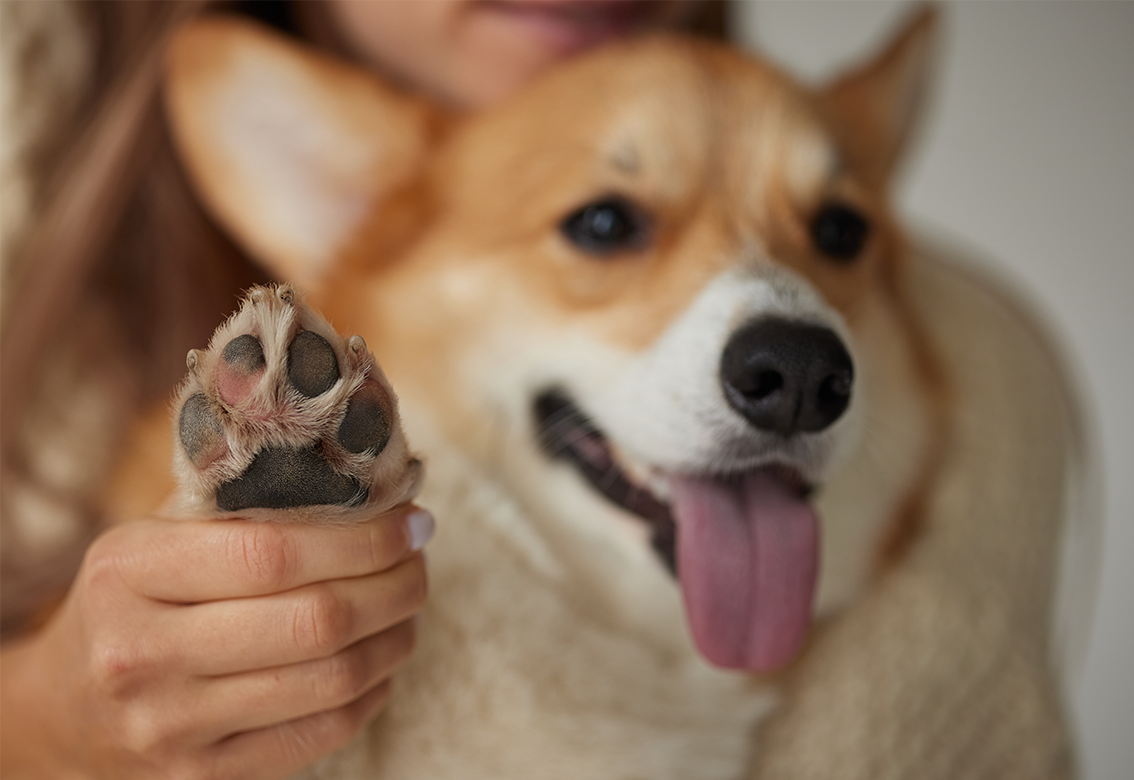Our Blog
Managing Epilepsy In Pets

Epilepsy is the main cause of seizures in pets and a commonly diagnosed neurological disorder that we see at our facility. Witnessing a seizure in your pet is a frightening experience, and it’s an event that any pet owner would want to understand and address right away.
The team at Lone Tree Veterinary Medical Center is here to help you navigate the difficult challenges that can occur during your pet’s life. Epilepsy can be one of those challenges and if it becomes a problem for your pet, helping you understand it is an important first step in managing it.
Continue…Recognizing And Treating Brain Tumors In Pets

No pet owner wants to hear that their beloved companion has been diagnosed with a brain tumor. The good news, however, is that this frightening problem is one that we don’t see very often. And, thanks to today’s cutting-edge veterinary technology, many of the brain tumors that are diagnosed in pets are treatable.
In the event it is determined that your pet has a brain tumor, gathering information is essential for making the best decision for your pet’s treatment and long term health.
Your team at Lone Tree Veterinary Medical Center is here to help you navigate the many questions that may arise with a brain tumor diagnosis and the treatment options that are available.
Continue…Why Do My Dog’s Feet Smell Like Fritos?

Have you ever noticed that your dog’s feet smell like Fritos or corn chips? Often referred to as ‘Frito’ feet, its term for the corn chip smell that comes from a dog’s paws.
At Lone Tree Veterinary Medical Center, we never shy away from life’s tough questions! Read below as we tackle the strangely pleasant phenomenon of why your dog’s feet smell like Fritos.
Continue…Anemia in Pets

Anemia is defined as a deficiency in the number of circulating red blood cells in the body. It is a relatively common health condition in humans – especially in women, due to low iron levels.
In pets, however, anemia is often the result of chronic disease, autoimmune disease, cancer, trauma or other medical condition.
Understanding Anemia
Red blood cells have no nucleus, DNA, or internal structures, but they serve a vital role in the body in that they contain hemoglobin, which is a protein that carries oxygen.
Continue…Hypothyroidism and Hyperthyroidism in Pets

Thyroid gland disorders can cause numerous health issues for pets and is a common problem that we see at Lone Tree Veterinary Medical Center. As in most medical conditions, the earlier thyroid disorders are diagnosed and treated, the better the outcome is for your pet.
Hypothyroidism and Hyperthyroidism in Pets
The thyroid gland is located in the neck, near the larynx, and is controlled by the pituitary gland in the brain. The thyroid gland is essential for regulating the body’s metabolic rate and does this by producing hormones that keep it in balance – the most important one being thyroxine. When the thyroid gland doesn’t function properly, the resulting hormone imbalance can wreak havoc with the body’s metabolism.
Continue…Kidney Disease in Pets

As in humans, the kidneys play an important role in the overall health of our pets. Apart from making urine, kidneys are responsible for regulating the balance of electrolytes in the body, keeping blood pressure in check, and the production of hormones that aid in calcium metabolism and red blood cell production.
While a diagnosis of kidney disease in our pet is understandably alarming, with proper care, this disease is usually manageable over the long term.
Continue…Asthma in Pets: A Dangerous Dilemma

The ways in which pets and humans are alike never ceases to amaze us here at Lone Tree Veterinary Medical Center. Like us, dogs and cats have complex social structures, nuanced personalities, strong likes and dislikes, and the need to connect with their family members (regardless of species)! There are also other similarities between pets and people, and one of those is a respiratory condition known as asthma.
As it is with people, asthma in pets is the restriction of the airways caused by an allergic reaction to an airborne irritant or pollutant. Any age or breed of pet can develop asthma, but cats (Siamese in particular) and middle-aged or older pets are more prone to it.
Continue…Seizures in Pets: What You Need to Know

If you’ve ever witnessed a seizure in a pet, you know how scary it can be. Panic may set in as you wonder what is wrong with your furry companion and what you should or shouldn’t be doing.
Seizures in pets are one of the most commonly diagnosed neurological disorders, but that doesn’t make it any less frightening. Getting to the bottom of why your pet has had a seizure is the key to treating and preventing future episodes.
What is a Seizure?
Seizures are caused by abnormal bursts of electricity in the brain function, which causes involuntary muscle activity.
Continue…Help! Why Does My Dog Have Stinky Fur?

Do you have an adorable, furry, four-legged stinker on your hands? While some level of ‘doggy smell’ is to be expected from our canine companions, truly stinky fur may be cause for concern.
Our team at Lone Tree Veterinary Medical Center doesn’t shy away from malodorous topics and can help you get to the bottom of your pup’s smelly situation!
Common Causes of Stinky Fur
Regular bathing and brushing will go a long way toward cutting down on normal doggy odors. Check with your veterinarian to see how often your dog should be bathed (we carry hypoallergenic pet shampoos for home bathing in our lobby retail store).
Continue…Kitten Care Basics

So you’ve taken the plunge and adopted a new kitten – congratulations! Get ready to be entertained, delighted, and perhaps a little frustrated… at times. Most of all, if you haven’t already, be prepared to fall head over heels for your adorable new friend!
These early days and weeks with your new little furball are fleeting and at Lone Tree Veterinary Medical Center, we want to help you get a great start by sharing some of our favorite kitten care tips. After all, making sure your kitten is a happy, healthy, and a well-adjusted member of your family is a top priority!
Continue…


